Main Content
Who Owns the City?
IRS Spring Academy Addresses Influence of Capital Markets on Urban Development
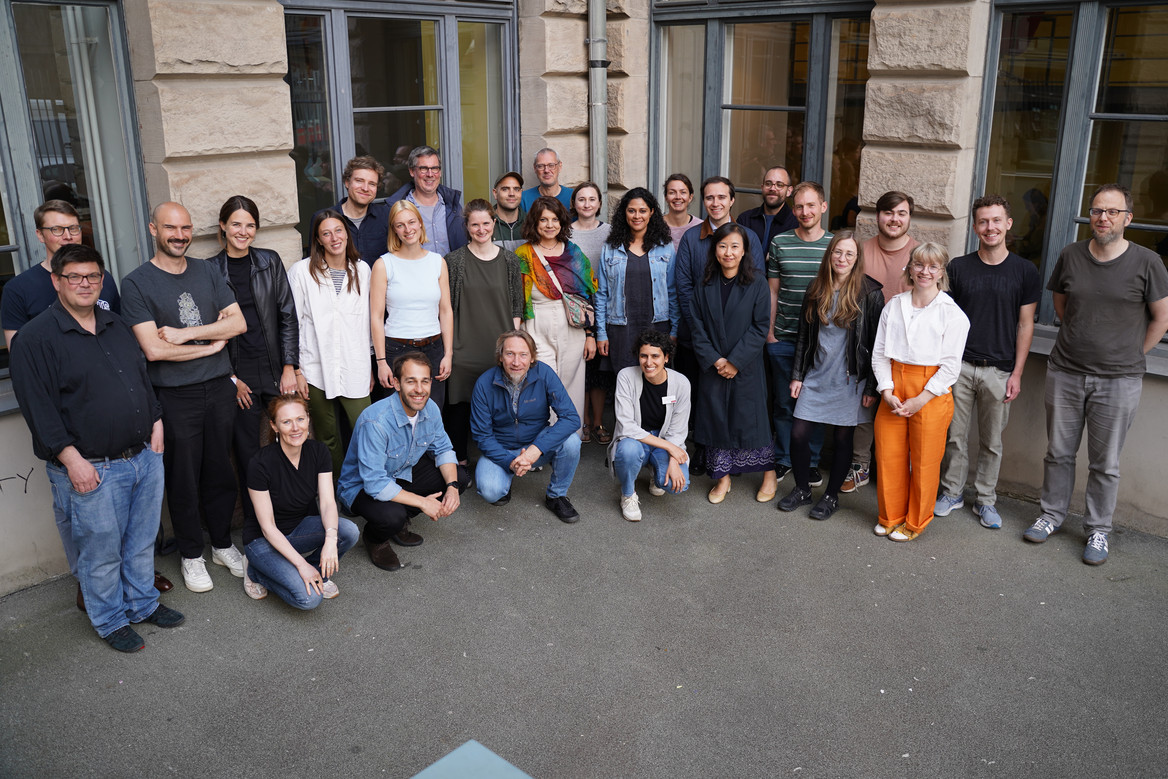

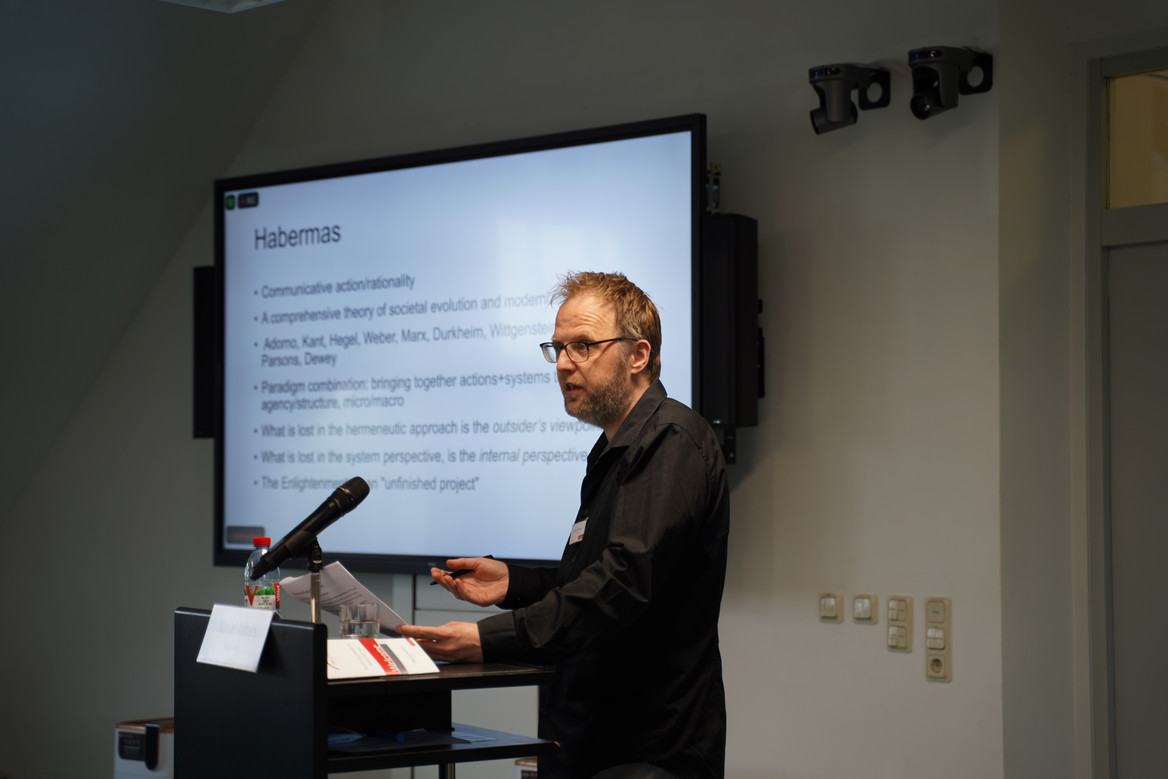
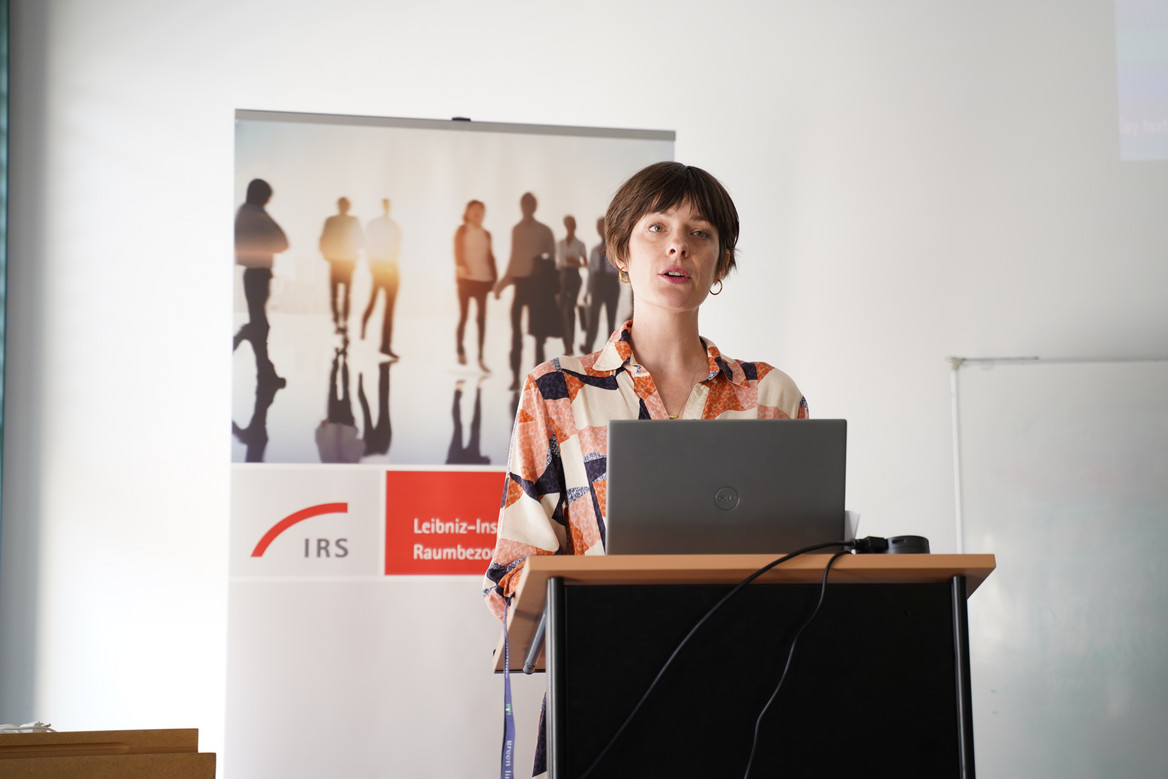
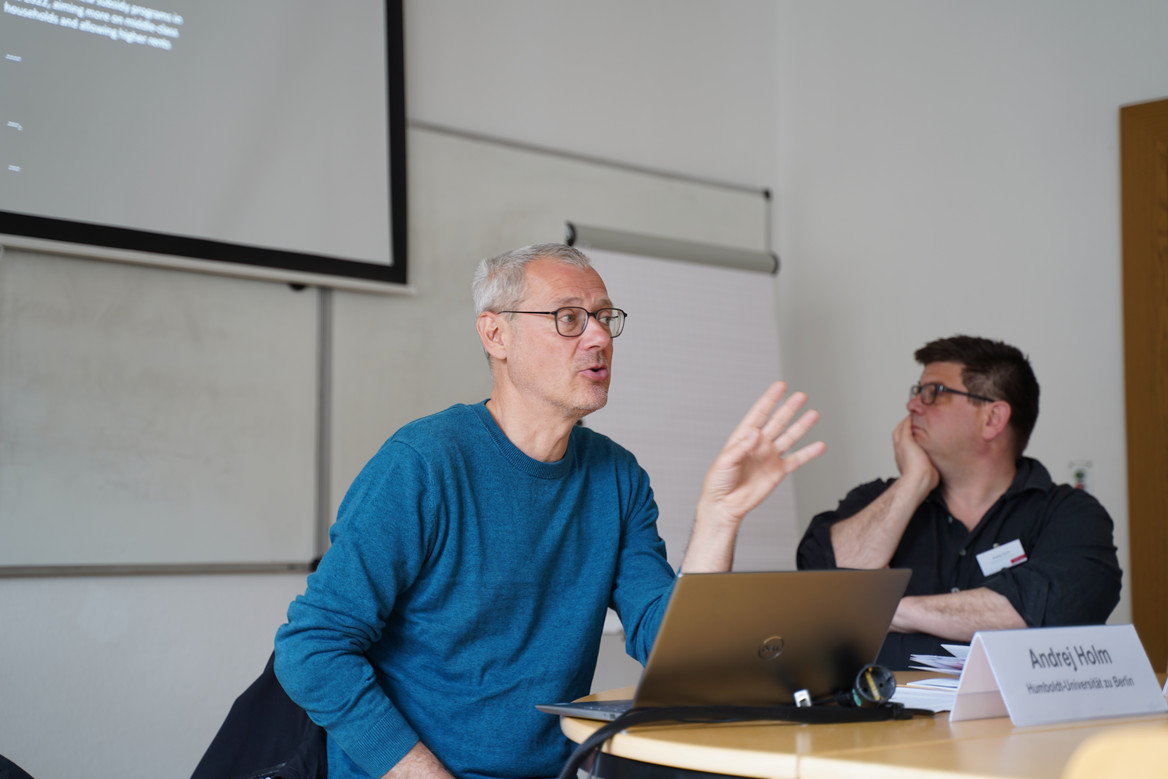
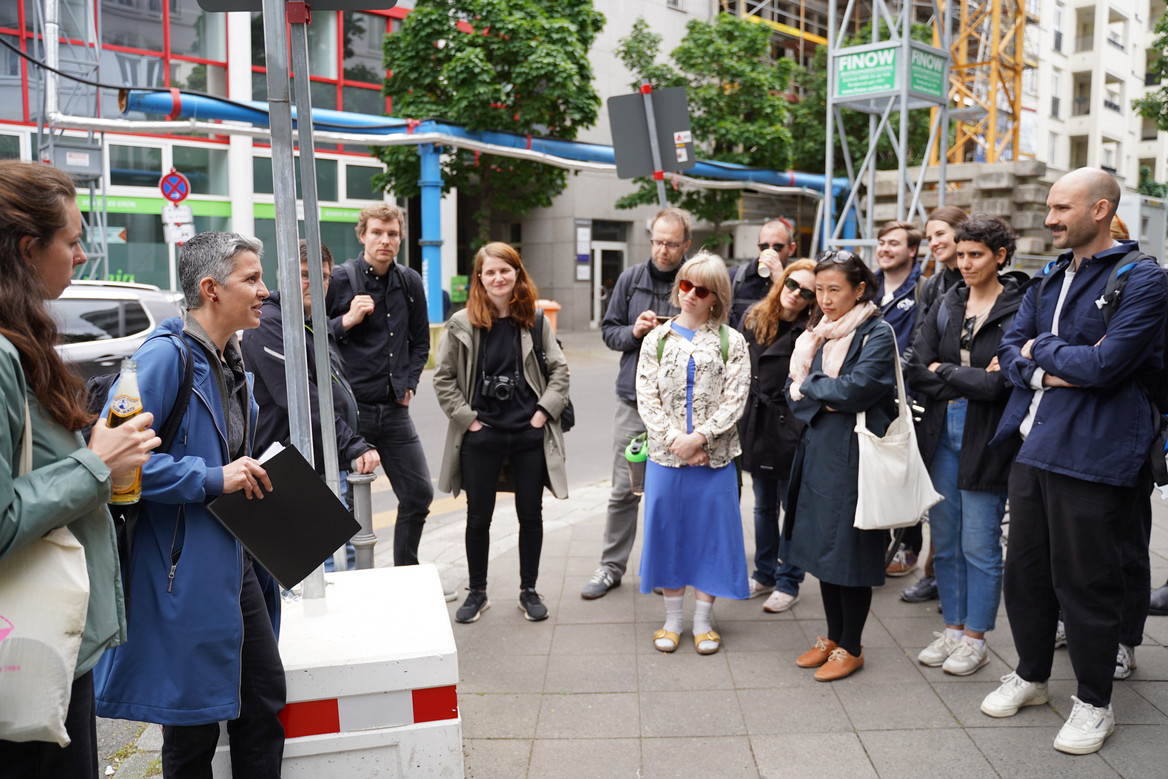
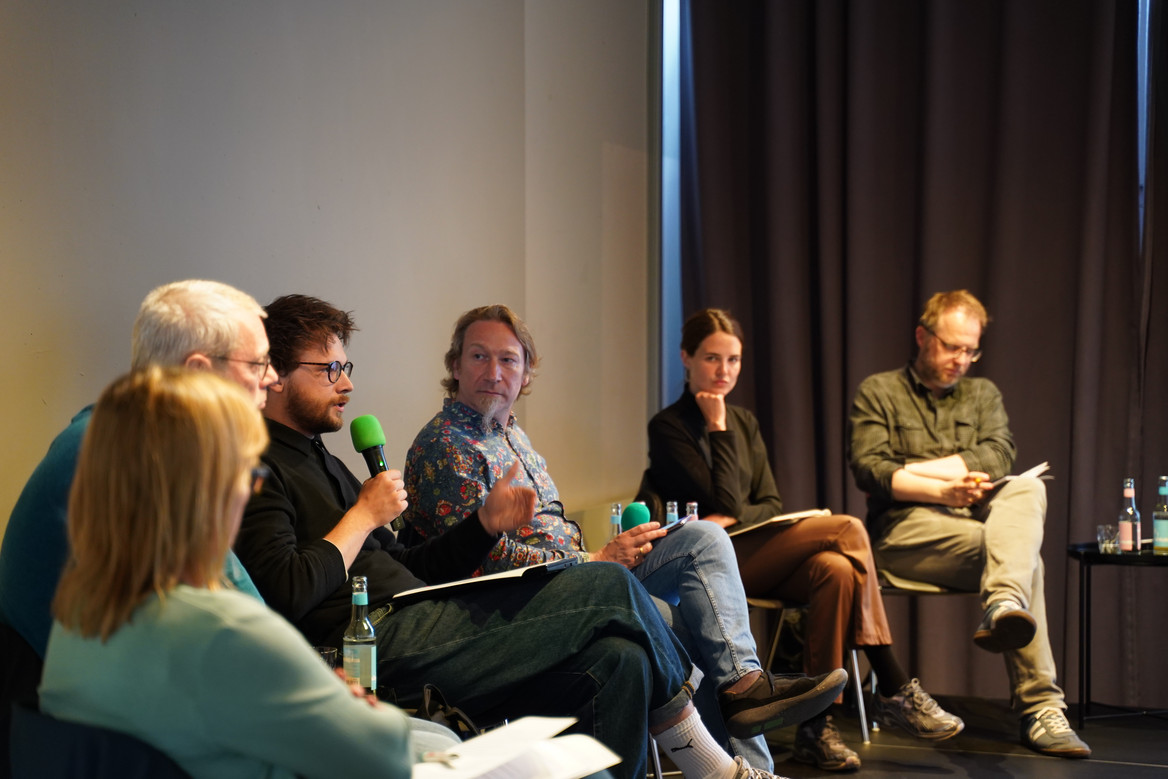
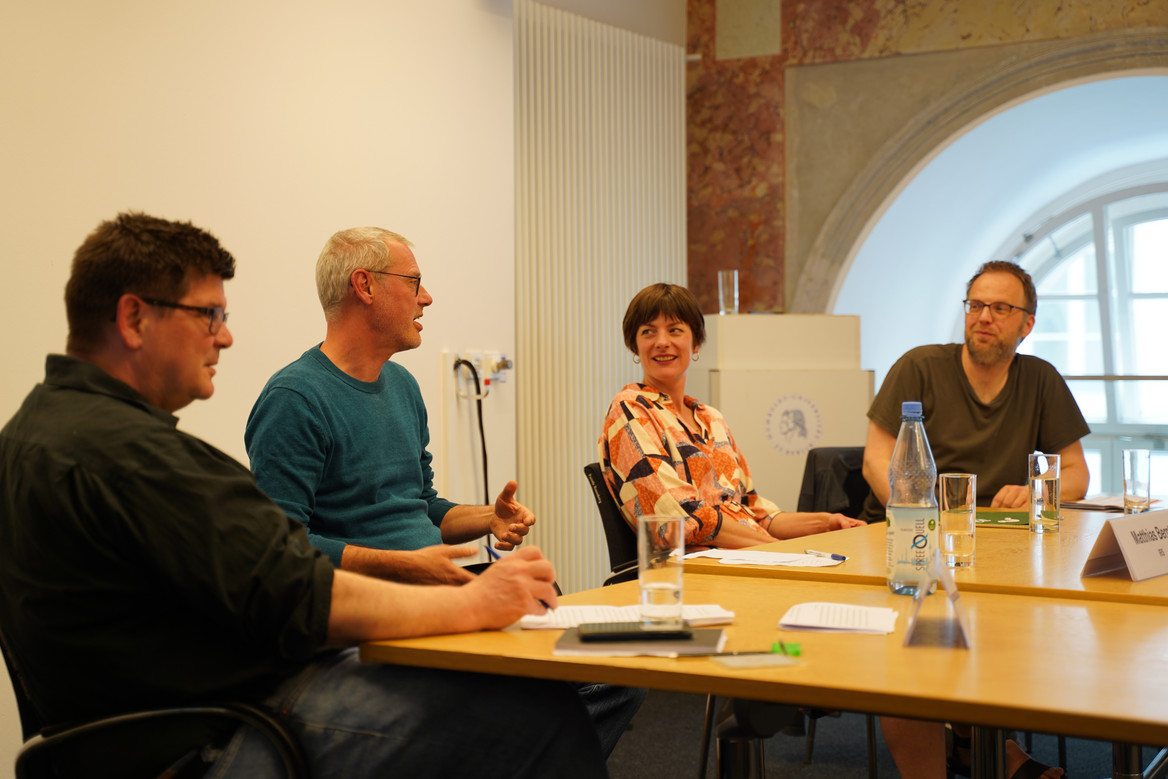
From 23 to 26 May 2023, the sixth IRS Spring Academy was held, addressing the question of how the logic of capital markets influences urban development and housing. 22 international early-career researchers discussed and learned about the topic in seminars, keynote lectures, paper pitches, workshops, a field trip and a panel discussion. The event was organised jointly by the IRS and Humboldt-Universität zu Berlin.
Since 2017, the annual IRS Spring Academy has offered international early-career researchers from the spatial and social sciences the opportunity to network intensively and get qualified feedback for their work. The IRS not only involves top international scientists as keynote speakers and mentors in this four-day event, but also brings a suitable partner organisation from Berlin-Brandenburg on board for each topic. Part of the joint learning then takes place at the partner's site, with many opportunities for encounters and hands-on experience. At the end of May 2023, the IRS and the Georg Simmel Center for Metropolitan Studies at Humboldt-Universität zu Berlin jointly held the sixth Spring Academy on "Spaces of Financialisation and De-Financialisation". After the last Academy in 2022 had been dedicated to the topic of "Spaces of Infection", then in collaboration with the Robert Koch Institute, a very political question was once again on the agenda: the influence of capital markets on housing, urban development and our everyday lives.
22 PhD students and postdocs from eleven countries, active in research disciplines such as geography, sociology, planning, architecture and design, brought their ongoing research projects with them, which addressed the topic from different angles, such as: How does financialisation influence urban mega-projects? Are urban planners ultimately also market players? Or also: Who owns Leipzig-Connewitz? Under the direction of Matthias Bernt, acting head of the IRS Research Aocus "Politics and Planning", and Andrej Holm, urban and regional sociologist at Humboldt-Universität, the topic was discussed in several seminars. In paper pitches, participants presented their own research ideas in a concise way and received feedback. Such result-oriented formats are typical elements of the Spring Academy: in Doing Research Workshops, participants exchanged views on practical questions of methodology and field research. At the Meet the Editors and Reviewers Panel, they learned how papers submitted to journals are selected and evaluated. In intensive "one on one" conversations, they received valuable advice on their research projects from renowned academics.
In addition to Bernt and Holm, these were Michael Janoschka, Professor of Regional Science at the Karlsruhe Institute of Technology, Sabine Dörry, Senior Researcher at the Luxembourg Institute of Socio-Economic Research, Manuel B. Aalbers, Professor of Human Geography at the Catholic University of Leuven (Belgium) and Desiree Fields, Associate Professor of Geography and Global Metropolitan Studies at the University of California, Berkeley, with Aalbers and Fields also appearing as keynote speakers. In his lecture, Aalbers used the lifeworld approach of philosopher Jürgen Habermas to show how monetary valuation categories structure everyday life today, increasingly causing nuances and context-specific idiosyncrasies to disappear. Fields presented the outline of her current research programme on the workings of an increasingly digitised capital, which led her to dystopian realities such as the robo-landlord and fully algorithmised processes of debt taking.
To directly experience the effects of financialisation, the group took a long walk from Berlin-Mitte to Kreuzberg. Using buildings along the route as examples, Laura Calbet Elias, head of the Institute of Urban Planning and Design at the University of Stuttgart and former IRS researcher, showed how real-estate in Berlin has changed hands since around the year 2000, how large investors penetrated the market and how this affected construction activity and housing supply. Hannes Strobel used the Otto-Suhr-Siedlung in Kreuzberg, built in the 1950s, to demonstrate how housing companies use energy refurbishment to maximise rents, and how tenants' initiatives achieve at least partial success in resisting this. At the destination of the excursion, the aquarium (Südblock) at Kottbusser Tor, a panel discussion, moderated by Michael Janoschka, was dedicated to the question of what can be learned from the Berlin example. Matthias Bernt and Manuel Aalbers were joined on the panel by Rabea Berfelde from the initiative "Deutsche Wohnen & Co. enteignen" ("Expropriate Deutsche Wohnen & Co.", Deutsche Wohnen being Germany's biggest commercial housing company), Wibke Werner from the Berlin Tenants' Association and Niklas Schenker from the party DIE LINKE (The Left).
With its many encounters, lively discussions and intensive exchange, the Spring Academy 2023, largely organised by IRS researcher Georgia Alexandri and IRS Research Support and International Affairs Officer Stefan Lindemann, was very successful for all involved. And although the cooperation between the IRS and the Georg Simmel Centre was a novelty in itself, the long-standing collaboration between Matthias Bernt and Andrej Holm in research on housing markets, gentrification and financialisation bore fruit here as well.


